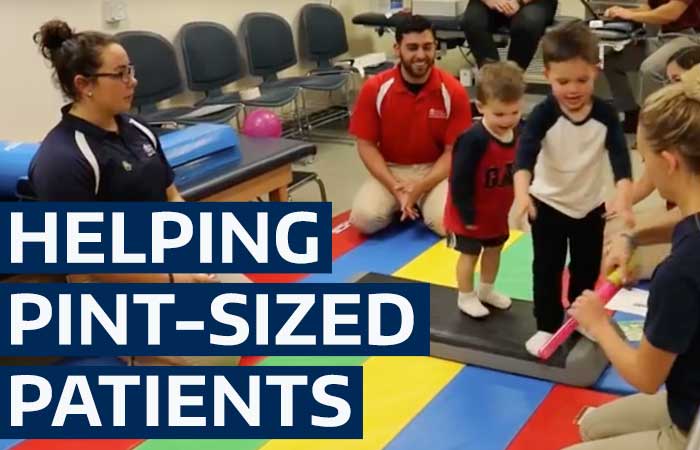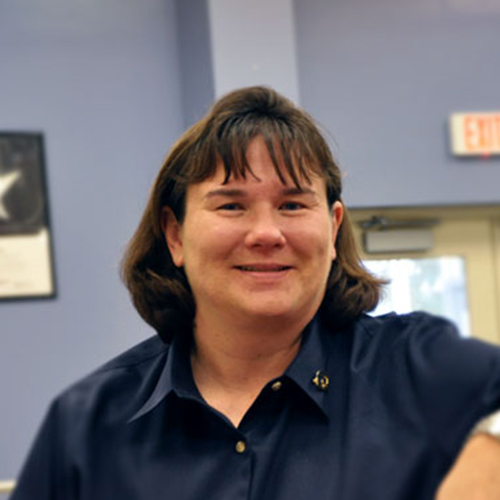Helping Pint-Sized Patients - DPT Program Hosts Free Pediatric Physical Therapy Clinic

It's a Wednesday afternoon and two-year-old Pete Ellis is deciding which sticker he wants to use.
"Which one do you want next: a puppy or a minion" one student asks while another sits behind Pete, stretching his legs out in front of him, one after the other.
Pete instinctively sits with his knees bent and his legs turned away from his body, making the shape of a W.
"Many family members had noticed that he was definitely pigeon-toed," says Erin Ellis, Pete's mom. "But it was one of those things where he just got more and more settled into it as he went. We had grown so accustomed to it, and him tripping and falling all the time, that we didn't think too much of it."
Ellis told Pete's doctor, who recommended an evaluation by an intermediate unit. But the wait time there can be weeks, if not months.
That's when Ellis heard about the Doctor of Physical Therapy program's Pediatric Physical Therapy Clinic, where students provide services, free of charge, for six weeks.
While under the mentorship of Dr. Sue Migliore, assistant professor, students work with Pete on a range of motion exercises, including stretching, sitting and standing balance, as well as coordination activities like stepping over foam pads and walking along a taped line.
"He has a lot of internal rotation," says Chelsea Smelas '19. "We were trying to get him more into a neutral hip position that will help hit some more of his milestones that he might not have hit early on. And it will help him later on in life be more functional with everyday tasks."
The clinic has also helped Ellis spot warning signs at home and give positive feedback. "We've learned what words work best for us," she says. "If we say 'sit nice,' he immediately corrects the way that he sits and that's not something we could really get him to do before."
For Smelas and her fellow students, the clinic provides essential hands-on training. "It's good experience for us," she says. "We're used to sitting in the classroom all day learning about all these conditions and diagnoses. On top of that, just knowing that we're helping out kids that really need this therapy, it's just an indescribable feeling."
The DPT program holds free clinics throughout the year. The next clinic will be in the spring for individuals experiencing activity limitations caused by neurologic health conditions. •
Learn more about DeSales DPT »






